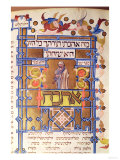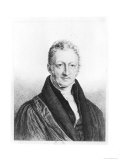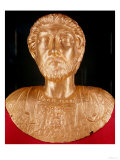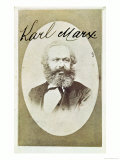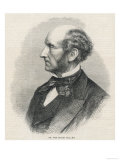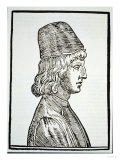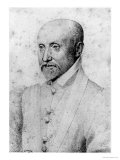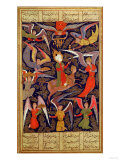|
|
|
|
|
Maimonides
b. 3-28-1138; Cordoba, Spain
d. 12-13-1204; Egypt
Philosopher Moses Maimonides was also a rabbi and physician. He is considered foundational to Judaism.
Maimonides quotes ~
• “Anticipate charity by preventing poverty.”
• "Give a man a fish and you feed him for a day; teach a man to fish and you feed him for a lifetime.”
• “No disease that can be treated by diet should be treated with any other means.”
• “Further, there are things of which the mind understands one part, but remains ignorant of the other; and when man is able to comprehend certain things, it does not follow that he must be able to comprehend everything.”
• “The risk of a wrong decision is preferable to the terror of indecision.”
• “Teach thy tongue to say ‘I do not know,’ and thou shalt progress.”
• The Guide for the Perplexed
|
|
|
|
Thomas Robert Malthus
b. 2-13-1766; Surrey, England
d. 12-13-1834; London
British scholar, professor, and clergyman, Thomas Robert Malthus, is best remembered for his theories of political economy and demography, placing the long-term stability of the economy above short-term expediency.
Malthus described the dangers of population growth leading to endless progress towards a utopian society. Thinkers like Charles Darwin and Alfred Russel Wallace built their ideas of natural selection from Malthus, and his influence reached to Karl Marx, John Maynard Keynes, and Mao Zedong.
Thomas Robert Malthus quotes ~
• “The histories of mankind are histories only of the higher classes.”
• “The rich by unfair combinations, contribute frequently to prolong a season of distress among the poor.”
• “The power of population is indefinitely greater than the power in the earth to produce subsistence for man.”
• An Essay on the Principle of Population
• Charles Darwin posters
• Paul Ehrlich
|
|
|
|
Marcus Aurelius
b. 4-26-121; Rome, Italy
d. 3-17-180; Vindobona or Sirmium (Vienna or Serbia)
Roman Emperor Marcus Aurelius, ruling from 161-180, is considered one of the most importatnt Stoic philosophers.
His work Meditations describes his philosophy of service and duty, on how to find and preserve equanimity by following nature as a source of guidance and inspiration. The meditations serve as an example of how Aurelius approached the Platonic ideal of a philosopher-king and how he symbolized much of what was best about Roman civilization.
Marcus Aurelius quotes ~
• “Bear in mind that the measure of a man is the worth of the things he cares about.”
• “A noble man compares and estimates himself by an idea which is higher than himself; and a mean man, by one lower than himself. The one produces aspiration; the other ambition, which is the way in which a vulgar man aspires.”
• “Be content with what you are, and wish not change; nor dread your last day, nor long for it.”
• “Because your own strength is unequal to the task, do not assume that it is beyond the powers of man; but if anything is within the powers and province of man, believe that it is within your own compass also.”
• “Do every act of your life as if it were your last.”
• “How much time he saves who does not look to see what his neighbor says or does or thinks.”
• “If it is good to say or do something, then it is even better to be criticized for having said or done it.”
• “Poverty is the mother of crime.”
• The Halieutic and Cynegetica
|
|
|
|
Herbert Marcuse
b. 7-19-1898; Berlin, German Empire
d. 7-29-1979; Starnberg, West Germany
Philosopher, sociologist and political theorist Herbert Marcuse is best remembered as the “Father of the New Left”, being influential to Angela Davis, Abbie Hoffman, and Rudi Dutschke.
Marcuse was influenced by Mikhail Bakunin, Edmund Husserl, and wrote a “Habilitation” with Martin Heidegger.
Herbert Marcuse quotes ~
• “Liberating tolerance, then, would mean intolerance against movements from the Right and toleration of movements from the Left.”
• “Surely, no government can be expected to foster its own subversion, but in a democracy such a right is vested in the people (i.e. in the majority of the people). This means that the ways should not be blocked on which a subversive majority could develop, and if they are blocked by organized repression and indoctrination, their reopening may require apparently undemocratic means. They would include the withdrawal of toleration of speech and assembly from groups and movements which promote aggressive policies, armament, chauvinism, discrimination on the grounds of race and religion, or which oppose the extension of public services, social security, medical care, etc”
|
|
|
|
Karl Marx
b. 5-5-1818; Trier, Kingdom of Prussia
d. 3-14-1883; London, England
Karl Marx, a philosopher, political economist, historian, political theorist, sociologist, communist, and revolutionary, is credited with formulating the ideas that are the foundation of modern communism, along with Friedrich Engels.
Marx summarized his approach in the first line of chapter one of The Communist Manifesto, published in 1848: "The history of all hitherto existing society is the history of class struggles."
Karl Marx quotes ~
• “The history of all hitherto existing society is the history of class struggles.”
• “Art is always and everywhere the secret confession, and at the same time the immortal movement of its time.”
• “Capital is dead labor, which, vampire-like, lives only by sucking living labor, and lives the more, the more labor it sucks.”
• “From each according to his abilities, to each according to his needs.”
• “In bourgeois society capital is independent and has individuality, while the living person is dependent and has no individuality.”
• “Necessity is blind until it becomes conscious. Freedom is the consciousness of necessity.”
• “Social progress can be measured by the social position of the female sex.”
• “Religion is the opium of the masses.”
• Marx : Selected Writings from 'Communist Manifesto', 'Wages, Price and Profit', 'Capital', 'Socialism: Utopian and Scientific
• see Rosa Luxemberg
|
|
|
|
John Stuart Mill
b. 5-20-1806; London, England
d. 5-8-1873; Avignon, France
Philosopher and civil servant John Stuart Mill was an influential contributor to social theory, political theory, and political economy. Mill's conception of liberty justified the freedom of the individual in opposition to unlimited state control, and he advocated utilitarianism, the idea that moral worth is determined by maximization of usefulness.
Mill married Harriet Taylor who was a brilliant philosopher in her own right. She had significant influence on Mill and reinforced Mill's advocacy of women's rights.
John Stuart Mill quotes ~
• “War is an ugly thing, but not the ugliest of things: the decayed and degraded state of moral and patriotic feeling which thinks that nothing is worth a war, is much worse.”
• “I never meant to say that the Conservatives are generally stupid. I meant to say that stupid people are generally Conservative.”
• “The only freedom which deserves the name, is that of pursuing our own good in our own way, so long as we do not attempt to deprive others of theirs, or impede their efforts to obtain it.”
• “The usefulness of an opinion is itself matter of opinion.”
• “To discover to the world something which deeply concerns it, and of which it was previously ignorant; to prove to it that it had been mistaken on some vital point of temporal or spiritual interest, is as important a service as a human being can render to his fellow creatures.”
• “To do as one would be done by, and to love one's neighbour as oneself, constitute the ideal perfection of utilitarian morality.”
• A System of Logic
• Mill Quote Originality poster
• Mill Quote Civilization poster
|
|
|
|
|
|
|
Michel Eyquem de Montaigne
b. 2-28-1533; Aquitanine, France
d. 9-3-1592; Château de Montaigne
One of the most influential writers and stateman of the French Renaissance, Michel Eyquem de Montaigne is best remembered as the “father of Modern Skepticism” and for popularizing the essay as a literary genre.
Montaigne quotes ~
• “Life in itself is neither good nor evil, it is the place of good and evil, according to what you make it.”
• “When I play with my cat, how do I know that she is not playing with me rather than I with her?”
• “Obsession is the wellspring of genius and madness.”
• “I believe it to be true that dreams are the true interpreters of our inclinations; but there is art required to sort and understand them.”
• “To forbid us anything is to make us have a mind for it.”
• “No man is a hero to his own valet.”
• “The only thing certain is nothing is certain.”
• “Whether the events in our life are good or bad greatly depends on the way we perceive them.”
• “Our religion is made to eradicate vices, instead it encourages them, covers them, and nurtures them.”
• “The clatter of arms drowns the voice of law.”
• The Complete Essays
|
|
|
|
Prophet Mohammed
b. c. 570; Mecca
d. 6-8-632; Medina
Mohammed is considered the restorer of an uncorrupted original monotheistic faith by his followers, the Muslims, and revered as a true prophet and Manifestation of God in the Baha'i Faith.
• Islam posters
|
|
|
previous page | top | next
social studies > list notable philosophers > a | b | c | d | e | f | g | h | i-l | M | n-o-p | q-r | s | t-z < science
|
|
I have searched the web for visual, text, and manipulative curriculum support materials - teaching posters, art prints, maps, charts, calendars, books and educational toys featuring famous people, places and events - to help teachers optimize their valuable time and budget.
Browsing the subject areas at NetPosterWorks.com is a learning experience where educators can plan context rich environments while comparing prices, special discounts, framing options and shipping from educational resources.
Thank you for starting your search for inspirational, motivational, and educational posters and learning materials at NetPosterWorks.com. If you need help please contact us.
|
|
|








